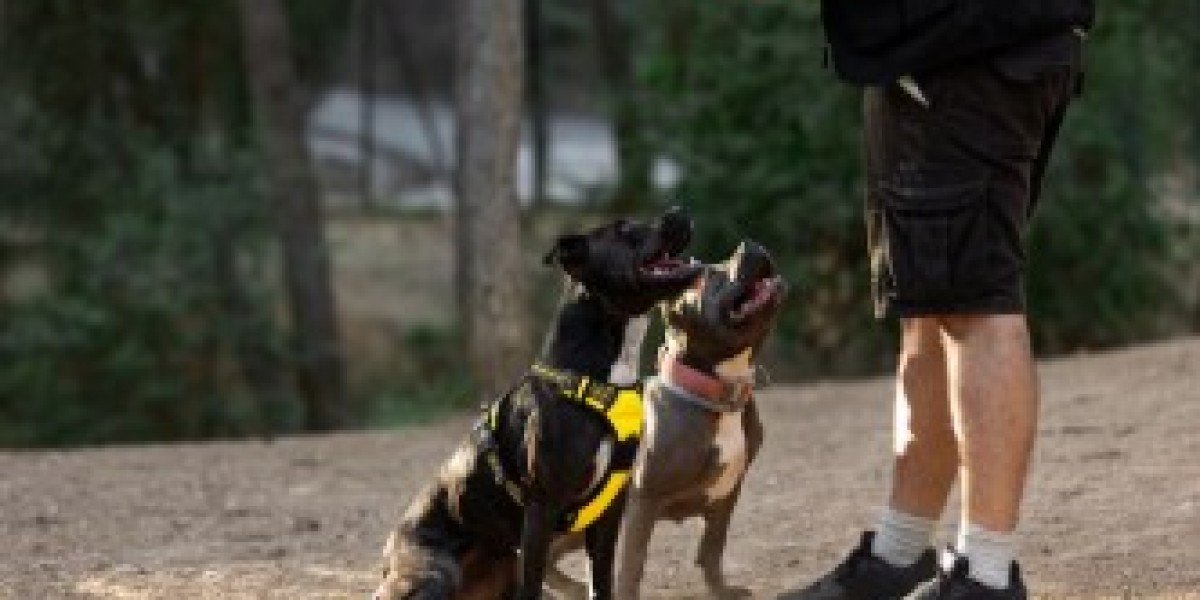In today’s world, security and peace of mind are more valuable than ever. While alarm systems and surveillance cameras can help protect your property, few security solutions can match the loyalty, intelligence, and deterrence provided by trained guard dogs. These highly skilled animals have been bred and conditioned for centuries to serve as protectors, companions, and defenders of families, homes, and businesses.
This article explores the role of trained guard dogs, their benefits, the breeds most commonly used, the training process, and how to choose the right one for your needs.
What Are Trained Guard Dogs?
A trained guard dog is not just a household pet; it is an animal that has undergone professional training to protect people, property, and valuables from potential threats. Unlike regular pets, trained guard dogs have specialized skills, such as:
- Recognizing intruders or suspicious behavior.
- Alerting their owner to danger.
- Defending against potential threats when necessary.
- Remaining calm and obedient under stressful situations.
Unlike aggressive or untrained dogs, professionally trained guard dogs strike a perfect balance between discipline and instinct. They are loyal to their owners, protective of their territory, and dependable in both family and professional environments.
Benefits of Having a Trained Guard Dog
Investing in a trained guard dog goes beyond simple companionship. Here are some of the key benefits:
1. Enhanced Security
Guard dogs are natural deterrents. The mere presence of a large, alert dog can discourage intruders, burglars, or vandals from approaching your property.
2. Loyal Protection
A guard dog forms a deep bond with its handler or family. This loyalty makes them willing to protect at any cost, often putting themselves between their owner and danger.
3. Versatility
Trained guard dogs are not just for homes. They are widely used by businesses, farms, estates, and even security agencies for protection purposes.
4. Early Warning System
While cameras record and alarms notify after an intrusion, a trained dog reacts instantly. They can sense unusual noises, smells, or movements long before humans notice.
5. Companionship
Beyond their protective role, trained guard dogs are still loyal pets. They can provide affection, companionship, and emotional support to families.
Best Breeds for Trained Guard Dogs
While almost any dog can act as a watchdog, certain breeds are better suited for professional guarding and protection due to their intelligence, strength, and temperament. Some of the most popular breeds include:
1. German Shepherd
German Shepherds are among the most common breeds used as guard dogs. Known for their intelligence, courage, and obedience, they excel in both family protection and law enforcement work.
2. Rottweiler
Rottweilers are powerful, loyal, and confident. With proper training, they make excellent guard dogs, balancing protective instincts with affection for their families.
3. Belgian Malinois
Often used by military and police forces, Belgian Malinois are agile, highly intelligent, and extremely trainable. They are perfect for serious security tasks.
4. Doberman Pinscher
Dobermans are sleek, fast, and fearless. Their loyalty and protective instincts make them one of the most reliable breeds for guarding property.
5. Bullmastiff
Known for their size and strength, Bullmastiffs are natural protectors. Their intimidating presence alone is enough to deter many intruders.
6. Cane Corso
Originating from Italy, the Cane Corso is a muscular, confident breed that excels in guarding and personal protection.
Each breed has unique qualities, and the right choice depends on your lifestyle, environment, and security needs.
The Training Process for Guard Dogs
Training is what separates a reliable guard dog from an untrained, potentially unpredictable pet. Professional training ensures the dog is disciplined, protective, and safe to have around family members.
Here are the typical stages of guard dog training:
1. Basic Obedience Training
Before learning protection skills, dogs must master basic commands such as sit, stay, heel, and come. This builds a foundation of discipline.
2. Socialization
A good guard dog must know how to distinguish between normal and suspicious behavior. Socialization with people, other animals, and different environments helps them stay calm and balanced.
3. Alert Training
Dogs are trained to recognize unusual activity, such as strangers approaching the property. Instead of acting aggressively, they first alert their owners with barking.
4. Controlled Protection
Advanced training involves teaching the dog when and how to engage with a threat. This may include defending their handler, holding down an intruder, or blocking access to a restricted area.
5. Handler Training
A trained guard dog is most effective when paired with an owner who knows how to handle them. Professional trainers often guide owners on how to issue commands and build trust with their dog.
Choosing the Right Trained Guard Dog
If you’re considering bringing a trained guard dog into your home or business, here are some factors to consider:
- Purpose: Do you need the dog for personal protection, property security, or business use?
- Breed Suitability: Some breeds are better for families with children, while others thrive in professional security roles.
- Temperament: Ensure the dog is both protective and stable enough to be around people daily.
- Professional Training Source: Always purchase from reputable trainers or agencies that specialize in guard dogs.
- Lifestyle Compatibility: Guard dogs require space, regular exercise, and time with their handlers.
Cost of Trained Guard Dogs
The cost of a trained guard dog can vary widely depending on the breed, level of training, and the training provider. On average, you can expect to pay anywhere from $5,000 to $20,000 for a fully trained protection dog. While the investment is significant, the return in safety, peace of mind, and companionship makes it worthwhile for many families and businesses.
Are Trained Guard Dogs Safe for Families?
One of the most common concerns is whether trained guard dogs are safe to keep around children and guests. The answer largely depends on the training and temperament of the dog. Professionally trained dogs are taught to distinguish between threats and normal situations. When handled correctly, they can be both loving family pets and reliable protectors.
Final Thoughts
Trained guard dogs are more than just animals—they are loyal partners dedicated to protecting what matters most. Whether you’re looking to secure your home, safeguard your business, or simply enjoy the companionship of a reliable and protective pet, a trained guard dog offers unmatched value.
By choosing the right breed, investing in professional training, and building a trusting relationship with your dog, you gain not just a protector, but a lifelong friend.





